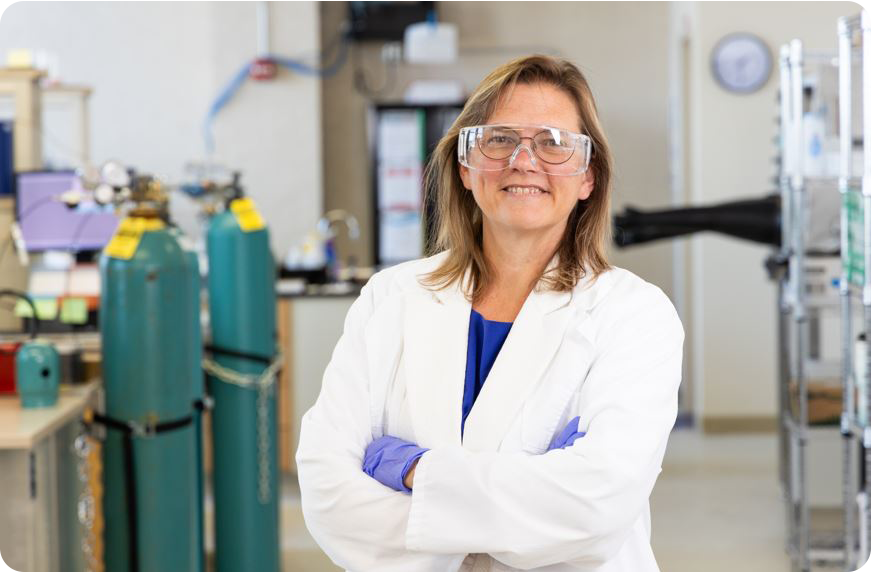
Dr. Carol Hirschmugl in her lab at COnovate
Column by Carol Hirschmugl, Ph.D.
Wisconsin Ambassador; CEO and cofounder, COnovate
Starting a clean technology company presents unique challenges. These startups require extensive product development, diverse expertise, and significant investment in equipment and infrastructure. While this results in longer timelines, it also offers the opportunity to make a lasting impact. Despite these challenges, COnovate’s mission is to bring faster-charging, higher-capacity, and safer lithium-ion battery options to market with the use of our patented eCOphite™ material.
Finding the right investors who understand the long-term nature of clean technology investments is crucial. We’ve found success by attending events that attract investors, such as those hosted by clean tech-focused venture funds and the Department of Energy (e.g., the Industry Growth Forum and the ARPA-E annual conference). Developing a target list of potential investors early on has been key to our success.
One significant potential funding source for local startups like ours is the Wisconsin Investment Fund. The fund is a public-private venture capital initiative that will initially invest $100 million in startups throughout the state and will distribute federal State Small Business Credit Initiative (SSBCI) funds to grow local ecosystems and requires matching funds from sponsoring firms. These funds will be crucial to jumpstarting local startups and keeping the money in state so that Wisconsin can benefit from its homegrown talent and technology.
Effectively conveying the long-term environmental and economic advantages of clean technology to investors is essential. Many of COnovate’s potential customers are now monitoring their environmental, social, and governance (ESG) metrics. Initial calculations indicate substantial benefits from using biosourced feedstock compared to graphite, which has a steep carbon footprint as a mined material.
When creating clean tech products, Wisconsin’s manufacturing industry offers a great advantage. Our product, eCOphite™, can be domestically sourced and produced using conventional furnace equipment, reducing dependence on graphite from China. Using domestic materials is attractive to investors because it supports local economies and minimizes the risk of supply chain issues. Plus, this qualifies us for Inflation Reduction Act tax credits, which can create a favorable environment for investors by reducing costs, thus encouraging growth and sustainability,
Looking ahead, we are optimistic about the future of the battery industry in Wisconsin and beyond. Locating our production facility near our biosourced feedstock in Wisconsin makes logistical sense and supports local supply chains. While the battery industry is heavily concentrated in Asia, making competition tough, this also highlights the growing need for diversified, localized production. This paves the way for significant industry growth and innovation, positioning COnovate for success.

